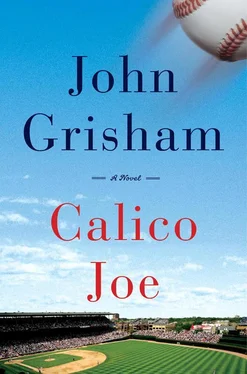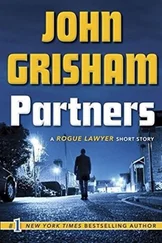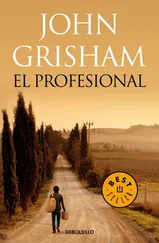By July 1973, my parents had endured twelve years of a bad marriage. Both were making their own secret exit plans.
* * *
That night Tom and I took the train to Grand Central, then the subway to Shea Stadium. Our seats were perfect—ten rows from the field near the Mets dugout. My father pitched well, going six strong innings and giving up only three hits, but the Mets blew a two-run lead in the ninth. On the way home, the subway was filled with rowdy Mets fans, some of them drunk. Occasionally, on these trips, or around the Little League field, or even at school, I would hear someone complaining about Warren Tracey. New York sports fans are rabid and well-informed, and they do not suffer from a lack of opinions. (I was at Shea once when they booed Tom Seaver.) Whenever I heard a derogatory comment about my father, I would always flinch and resist the temptation to return the insult. Often, though, the complaints were legitimate.
I made it home, checked in with Mom, then hurried to bed. I did not want to be awake when he got home, if, in fact, he made it back. His worst drunks were on the nights after he pitched. He wouldn’t play again for three days, so why not blow it out and raise some hell?
7

The following Saturday, the White Plains East All-Stars lost to Rye in the first round of the regional tournament, and the Mets lost to the Cardinals. I didn’t play, and neither did my father. Of course, as a starting pitcher he would never play on his day off, but I should have played an inning or two. During the regular season, when I was not pitching, I roamed the outfield. I hit .412 in eighteen games, sixth highest in the league, and late in the game against Rye we needed a hitter at the plate. Our coach, though, felt otherwise.
Looking at the brackets near the concession stand, I suddenly felt lousy. I would be the starting pitcher in our next game Monday afternoon against Eastchester, and my father would be in the vicinity. He did not make the National League All-Star team, did not even come close, though in his opinion he should have been considered. The All-Star break ran for three days, with the game to be played in Kansas City on Tuesday night.
With a schedule that runs from the first of April to the end of September, eighty-one games at home and eighty-one on the road, big leaguers cherish the All-Star break. Those not chosen to play often dash home or enjoy brief vacations. The year before, after being overlooked yet again, my father and a teammate spent the break trout fishing in Montana, then met the team in San Francisco when the schedule resumed. Listening carefully, I had unfortunately heard no such talk of a fishing trip this year.
* * *
When my father watched me play, he never sat in the stands with my mother or the other spectators. He didn’t want to be bothered. Once, a kid asked for his autograph, and he griped about it for a week. He played for the Mets; therefore, he was famous and did not wish to mingle with ordinary parents. To get away, he would find a spot on the fence not far from our dugout, and from there, alone, he would growl and yell advice. He despised all of my coaches because they, of course, knew so little about the game. Invariably, they tried to engage him because of who he was, and his rude behavior was embarrassing. On several occasions, I was compelled to apologize to a coach.
The tournament was played in Scarsdale, and as we drove to the ballpark, no one said a word in the car. Jill and I were in the rear seat, and she was pouting because she hated baseball. My father was sore because a writer in the Times that morning had said the Mets could not win the pennant with Warren Tracey in the rotation. I was a nervous wreck, and my stomach was aching. My mother flipped through a magazine as if all were well.
When I took the mound, I could barely grip the ball. My first pitch was a weak fastball that the batter lined hard, but directly at our shortstop. I took a breath and felt better. My second pitch was a fastball that the batter popped foul to our first baseman. Two pitches—two outs. This might be easier than I thought. The third batter was trouble and everyone knew him. His name was Luke Gozlo, a big kid with a big mouth and a big bat to back up his words. He would later be drafted by the Red Sox and fade away in the minors.
My coach said repeatedly, “Don’t put the ball in the center of the plate. A walk is better than a home run.” I was trying my best to walk him when my third pitch trailed inside. Luke lifted his front foot, attacked the ball, and as soon as he hit it, I felt sick. Our left fielder never moved. The jackass stood with his hands on his hips and watched the ball as if he were watching a jet fighter buzz the field. It landed in the parking lot. Luke whooped and hollered as he rounded first and second, his fist pumping in the air. What a jerk. He stomped on home plate and yanked off his helmet so everyone could see his grinning face.
I threw three fastballs as hard as I possibly could and struck out the cleanup hitter. As I walked off the field (never run, my father had insisted; the pitcher never runs off the field), my father was waving me over. My coach, though, suspected trouble and met me at the foul line. He put his arm around my shoulder, told me to shake it off, and escorted me into the dugout, where I was safe from my father’s advice.
Luke Gozlo came to the plate in the top of the fourth with the bases empty and no outs. My father yelled “Paul” to get my attention, but I pretended not to hear him. My first pitch was a fastball that Luke hacked at and missed, and as our fans were cheering, I heard my father say, “Knock him down, Paul.” I looked at my coach. He heard it too, and he was shaking his head. No.
I had hit a few batters, but never intentionally. The year before I had bounced a fastball off the helmet of Kirk Barnes. The sound was sickening. He cried for an hour, and both of us almost quit the game. And I wanted no part of Luke Gozlo. He was a tough kid, the type who would wait in the parking lot after the game and beat the hell out of me.
I walked him on the next four pitches, none of them remotely near his head or near the strike zone. With a 2 and 2 count on the cleanup batter, I hung a curveball, a huge mistake. He crushed it, and when it cleared the fence, Luke started whooping it up and showing his ass again as he rounded the bases. At that moment, I wished I had beaned him.
I struck out the next two, then walked two, then got lucky with a long fly ball to deep right field. As I walked to the dugout, I glanced at my father. He was shaking his head, frowning, mumbling, with both arms folded angrily across his chest. I thought about hitchhiking home. Maybe I could catch a ride with a coach or a teammate. Maybe I could just move in with the Sabbatinis and have a normal life.
With the team trailing 5–2 and facing elimination, our coach decided to change pitchers. I wanted to keep playing, but I was also relieved to be out of the game and tucked away in the dugout.
Eastchester won 11–2, and our season was over.
My career was over too. I would never again put on a baseball uniform.
* * *
My father waited perhaps two minutes into the drive home before he reached the point where he could no longer stay quiet. “That was a pathetic game,” he began.
My mother was ready to explode, and she snapped, “Don’t start it, Warren. Don’t even think about it. Just shut up and drive.”
I couldn’t see his face, but I knew it was bloodred. I knew his first reaction would be to stop the car, slap her across the face, then attack me in the rear seat. Passing motorists would be treated to the sight of another Tracey family brawl, postgame, on the shoulder of the road.
Читать дальше












